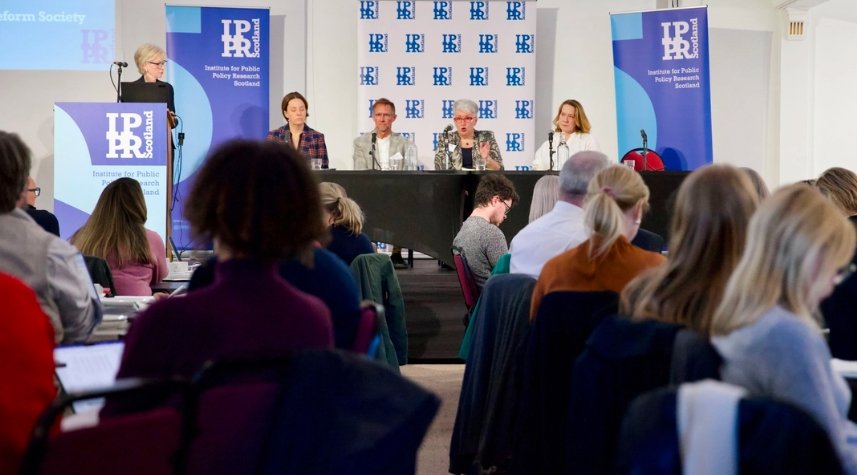Edinburgh played host to a major gathering as IPPR Scotland marked its tenth anniversary with a conference focused on the nation’s future. Leaders like First Minister John Swinney and Scottish Labour’s Anas Sarwar shared insights on devolution, poverty challenges, and rebuilding public trust, drawing experts and community voices to discuss Scotland’s path ahead in 2025.
This event came at a pivotal time, just months after the UK general election shifted power dynamics, and as Scotland grapples with ongoing economic pressures from inflation and austerity measures. Attendees explored how devolution has evolved since 1999, while highlighting gaps in addressing poverty and eroding faith in politics.
Conference Spotlights Major Voices and Ideas
The conference brought together policymakers, researchers, and people with direct experience of key issues. Swinney opened with a look back at 30 years of devolution, stressing its role in shaping progressive changes like social security reforms and child poverty initiatives.
Sarwar followed, calling for bold reforms to tackle deep seated problems. Panels dove into real life stories, such as the rising cost of basics like food, which has jumped sharply in recent years.
Experts noted Scotland’s renewable energy potential and the need for cross sector teamwork on net zero goals. The day ended with reflections on turning talk into action, amid a backdrop of national debates on independence and economic fairness.
One standout moment was a panellist’s simple prop: a packet of biscuits now costing five times more than a decade ago, symbolizing everyday struggles.

Devolution’s Wins and Ongoing Challenges
Devolution has delivered real gains for Scotland over the past three decades. Policies made in Holyrood have led to unique approaches, such as the Scottish Child Payment, which supports over 300,000 children and has lifted thousands out of poverty since its launch in 2021.
Yet, limits on powers remain a sticking point. Swinney pointed out that while Scotland controls areas like health and education, fiscal tools are still tied to Westminster, hampering efforts on bigger issues like energy costs.
Recent data shows Scotland’s economy grew by 1.2 percent in 2024, outpacing the UK average, thanks in part to devolved investments in renewables. But critics argue more autonomy is needed to fully address regional needs.
The conference echoed calls for reassessing devolution, especially with the UK government’s recent budget cuts affecting public services.
Attendees agreed that strengthening devolved powers could drive better outcomes in housing and welfare, building on successes like rent controls introduced in 2022.
Poverty Realities Take Center Stage
Poverty discussions pulled no punches, with lived experiences front and center. Speakers shared how systems like Universal Credit fail to keep up with rising costs, leaving families in tough spots.
Scotland’s child poverty rate stands at 24 percent in 2025, down from 26 percent five years ago, but still far from targets. The Scottish Government aims to reduce it to under 10 percent by 2030 through measures like expanded free school meals.
One panel highlighted myths, such as the idea that poverty is solved in wealthier nations, ignoring hidden hardships in communities.
Inflation has hit hard, with food prices up 25 percent since 2020, forcing many to rely on food banks. Over 1 million Scots live in poverty, a figure unchanged in recent years despite efforts.
The event stressed treating those affected as experts, not just participants in talks.
Breaking Down the Trust Gap in Politics
Trust emerged as a core theme, with Sarwar noting widespread doubt that leaders can deliver change. This deficit stems from years of unkept promises, from NHS waiting times to housing shortages.
Polls in 2025 show only 35 percent of Scots trust their government to handle key issues, down from 50 percent a decade ago. Factors include the cost of living crisis and Brexit fallout.
For marginalized groups, trust is even lower, with communities facing racism or inequality feeling overlooked despite inclusion efforts.
The conference urged action over words, suggesting transparent plans and measurable goals to rebuild faith.
Experts linked this to broader UK trends, where austerity since 2010 has widened gaps, but Scotland’s devolved model offers a chance to lead differently.
Key Stats on Scotland’s Progress and Hurdles
To put the discussions in context, here are some vital figures from recent reports:
| Area | Current Status | Change Over 10 Years |
|---|---|---|
| Child Poverty Rate | 24% of children affected | Decreased by 2% |
| Economic Growth | 1.2% in 2024 | Up from 0.8% average |
| Renewable Energy Share | 97% of electricity from renewables | Increased from 30% |
| Public Trust in Government | 35% approval | Down from 50% |
| Food Bank Usage | 200,000 parcels distributed yearly | Doubled since 2015 |
These numbers show advances in some areas but highlight persistent challenges like poverty and trust.
Pathways Forward for a Stronger Scotland
Looking ahead, the conference painted a picture of cautious optimism. Ideas floated included deeper collaboration on net zero, using Scotland’s wind and hydro strengths to create jobs.
Speakers called for policies that truly incorporate lived experiences, moving beyond consultations to real influence.
With elections on the horizon in 2026, these talks could shape party platforms, focusing on economic recovery and social justice.
Scotland’s story of resilience shone through, with attendees committed to pushing for change despite obstacles.
What are your thoughts on these issues? Share this article and comment below to join the conversation on Scotland’s future.


















